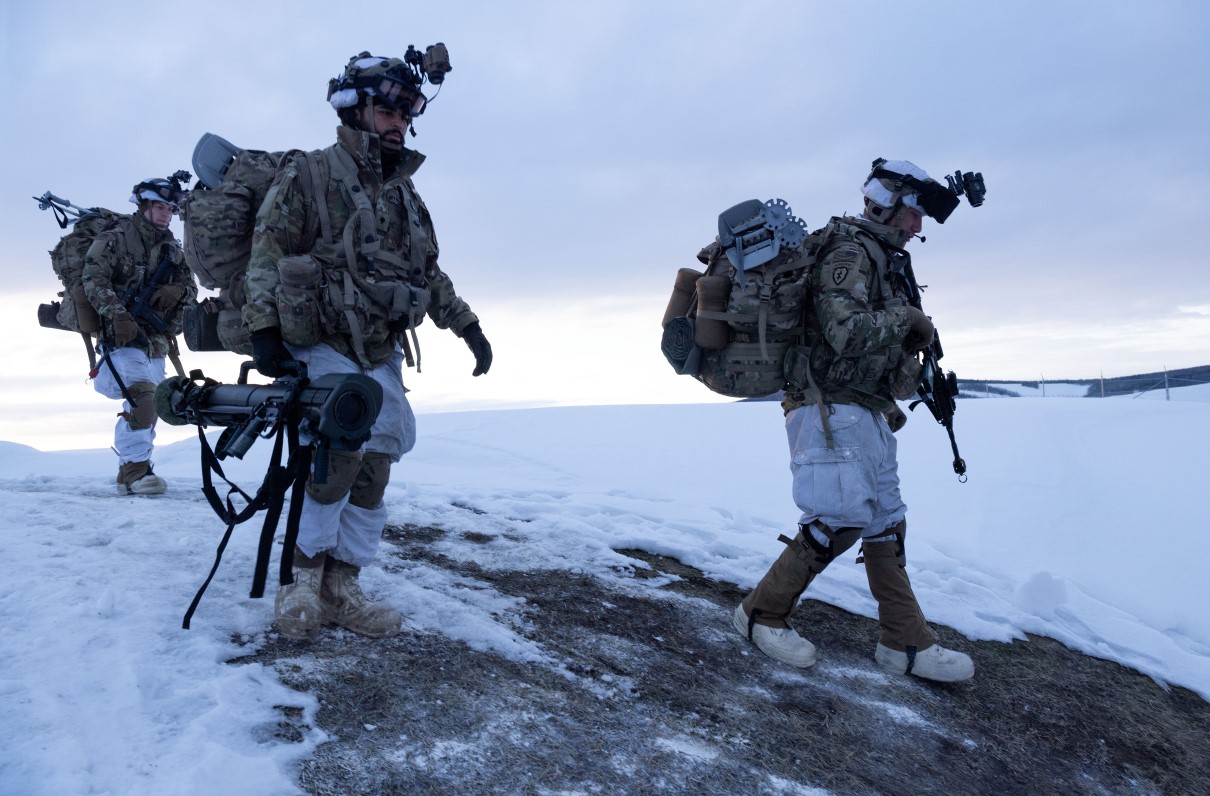Editor’s note: This article by Thomas Novelly originally appeared on Military.com, a leading source of news for the military and veteran community.
When Sen. Lisa Murkowski's legislation authorizing the Pentagon to provide an Arctic pay incentive to service members stationed in Alaska was passed into law, it was viewed as an essential way to improve quality of life and boost morale amid a string of recent suicides.
But more than a year after it was passed in the 2023 National Defense Authorization Act, the Pentagon has not enacted a new Arctic pay bonus, and a defense official told Military.com the military's existing programs already compensate service members serving in those areas well enough.
"Because the department was already compensating members for the unique conditions of 'cold-weather service,' including through the use of the same legislative authority referred to in section 603 of the FY23 NDAA, it did not need to implement an entirely new pay or program based on the section 603 amendments enacted by the FY23 NDAA," the official said.
But the existing programs created to compensate service members stationed in Alaska aren't equal among the service branches, namely the Army and Air Force. Murkowski also pushed back on the Pentagon's implication that an Arctic pay bonus would be redundant.
"This is not about double dipping; this is about addressing the realities that our men and women in uniform face when they operate in Alaska, and their ability to take care of themselves and their families," Joe Plesha, Murkowski's communications director, told Military.com on Thursday. "Sen. Murkowski purposely included the Arctic pay bonus in the 2023 National Defense Authorization Act to offset these costs and help our service people in Alaska, and will continue to work with the department to ensure that provision is honored."
Currently, Army soldiers stationed in Alaska receive Hardship Duty Pay, as well as Remote and Austere Conditions Assignment Incentive Pay.
Hardship Duty Pay is a $150-a-month incentive for service members at bases inside the Arctic Circle above 66 degrees 33 minutes north latitude, Antarctic bases below 60 degrees south latitude, and at six locations in Alaska, including Annette Island, Clear Space Force Station, Cordova, Eareckson Air Station, Fort Greely and Unalaska. It is for living conditions "substantially below the standard most members in the continental United States would generally experience," according to the Pentagon's website.
[FROM MILITARY OFFICER MAGAZINE: ‘Arctic Angels’ Soar Again: Inside the Rebirth of the 11th Airborne Division]
Remote and Austere Conditions Assignment Incentive Pay, an Army-specific program started in 2020, is a one-time payment between $1,000 and $4,000 to purchase gear required to live in Alaska.
Airmen and Space Force Guardians, however, don't have as many financial incentives if stationed in Alaska.
While the Department of the Air Force also has hardship duty pay based in Alaska, it's only distributed to a few airmen.
As of November, 109 airmen and 10 Guardians were receiving the $150-a-month benefit at Clear Space Force Station, said Laurel Falls, an Air Force spokeswoman. Additionally, two airmen at Eareckson were also receiving the pay.
A program like the Army's Remote and Austere Conditions Assignment Incentive Pay doesn't exist for airmen.
[RELATED: Momentum Building for ‘Generational Investment’ in Army Housing]
"The [Department of the Air Force] currently does not provide cold-weather pay for airmen stationed in Alaska," Falls said. "However, airmen stationed in Alaska are issued cold-weather gear, similar to the Army gear, upon arrival. Most outerwear gear is turned in at departure, but airmen are able to keep some [issued] items, such as base layers."
Improving quality-of-life conditions in Alaska was seen as a much-needed priority for lawmakers and the service branches.
Military.com first reported in November 2022 that four soldiers in Alaska died by suicide in a month. The Army has been struggling with a spike in suicides over the past two years in Alaska. In 2021, Military.com reported, the service had 11 soldiers die by suicide there raising concerns.
"The remote location and harsh weather conditions present challenges to service members who are assigned to duty stations in Alaska," lawmakers wrote in a 2022 report accompanying the bill. "We encourage the Department of Defense and the military services to continue to develop innovative quality-of-life initiatives designed to improve morale for service members and their families assigned to Alaska."
One such initiative that was implemented was allowing service members in Alaska to fly home once a year for free, Military.com reported in June.
What’s Your State’s Report Card?
MOAA has assessed each state's taxability of military retired pay and survivor benefits, as well as whether states have enacted legislation addressing servicemember and military family issues. For a limited time, all MOAA members can access MOAA’s Military State Report Card and Tax Guide.
